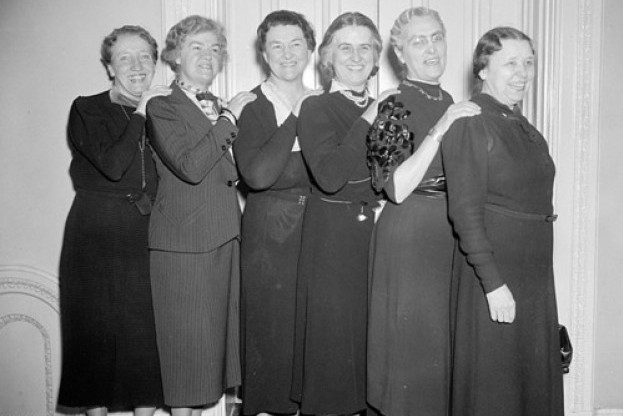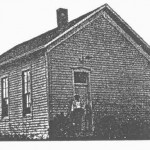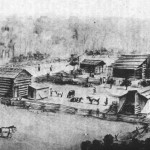Women members of the Seventy-fifth U.S. Congress. March 4, 1938. (Left to right): Rep. Caroline O’Day (New York), Rep. Edith Nourse Rogers (Massachusetts), Rep. Mary T. Norton (New Jersey), Rep. Nan Honeyman (Oregon), Rep. Virginia E. Jenckes (Indiana), and Senator Hattie W. Caraway (Arkansas). Source: Library of Congress Prints and Photographs Division
The first woman to represent Hoosiers in Congress was Virginia E. Jenckes, an independent-minded Democrat from Terre Haute who served in the nation’s capital for three terms, from 1932 to 1938. She was a populist, a patriot, and an iconoclast.
Jenckes was born in 1878 in Terre Haute where her father, James E. Sommes, was a druggist. She attended Wiley High School at the early age of eleven and finished at the local Coates College. She married Ray Jenckes soon afterward, and the couple had one daughter (also named Virginia).
When Ray died in 1921, it was up to Virginia (the elder) to run the family’s large farm and grain business. Farming may have sparked Jenckes’s interest in politics in the 1920s, for she saw firsthand how the lack of public flood control programs affected farmers’ livelihoods. At one point during that decade, the Wabash River flooded nine times in just fourteen months, causing millions of dollars in damage and prompting Jenckes and another woman to drive all the way to Houston, Texas, to lobby at the 1928 Democratic National Convention for a flood control plank in that party’s platform.
When Jenckes ran for Congress in 1932, Indiana’s legislative districts had recently undergone redistricting; Jenckes’s new district ran along the Wabash from Vigo County up to Warren County, and was populated by farmers—a receptive audience for her message. Forty-four-year-old Jenckes campaigned, with her daughter alongside her, against Prohibition, which she said hurt farmers by denying them a market for grain, and for flood control. She won handily and went on to support most of the New Deal programs, including the Civilian Conservation Corps, banking regulation, Social Security, farm supports, and public housing.
Although Jenckes was a Democrat who supported FDR, she did not always support his federal programs; she was a conservative at heart, and wanted to abolish the WPA because she felt the program’s low, government-subsidized wages unfairly competed with the building trades for construction projects. Jenckes’s conflicting views toward federal relief programs reflected well those of her constituents, who reelected her in 1934 and again in 1936, when her daughter tragically succumbed to tuberculosis just weeks before the election.
Throughout her six years in Congress, Jenckes devoted much of her energy to the fight against Communism, a cold warrior in the years before the Cold War itself. She was intensely devoted to national symbols such as the American flag, and she insisted that public buildings fly the standard, especially in the nation’s capital. She was highly distrustful of both “communist Russia and militaristic Japan”—she advocated removing the cherry trees given to the U.S. by Japan and replacing them with homegrown, American cherry trees, because she viewed the gift as an inroad for Japanese spies and propaganda.
Though Jenckes was an isolationist concerning developments in Europe during the 1930s, she also strongly supported Roosevelt’s defense buildup, on the grounds that “a strong defense was the best way to keep the United States out of war, which she believed had a particularly harsh effect on wives and mothers.”
Though Jenckes was conservative, she was still a Democrat in a heavily Republican district, and she lost her bid for reelection in 1938, when Hoosier voters overwhelmingly turned toward the G.O.P. With no family left in Terre Haute, Virginia Jenckes made her home in Washington and worked as a lobbyist for the Red Cross and the Catholic church until the age of 90, when she returned to Indiana.
She died in a Terre Haute nursing home at the age of 97, a patriot and a pioneer.
A Moment of Indiana History is a production of WFIU Public Radio in partnership with the Indiana Public Broadcasting Stations. Research support comes from Indiana Magazine of History published by the Indiana University Department of History.
IMH Source article: Edward K. Spann, “Indiana’s First Woman in Congress: Virginia E. Jenckes and the New Deal, 1932-1938,” Indiana Magazine of History 92, no. 3 (September 1996): 235-253.























